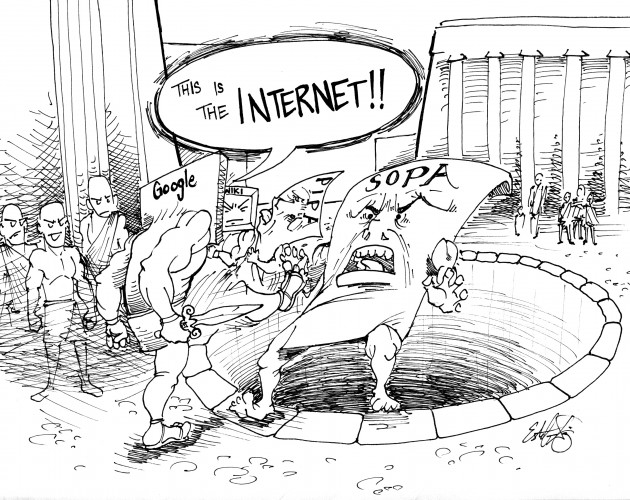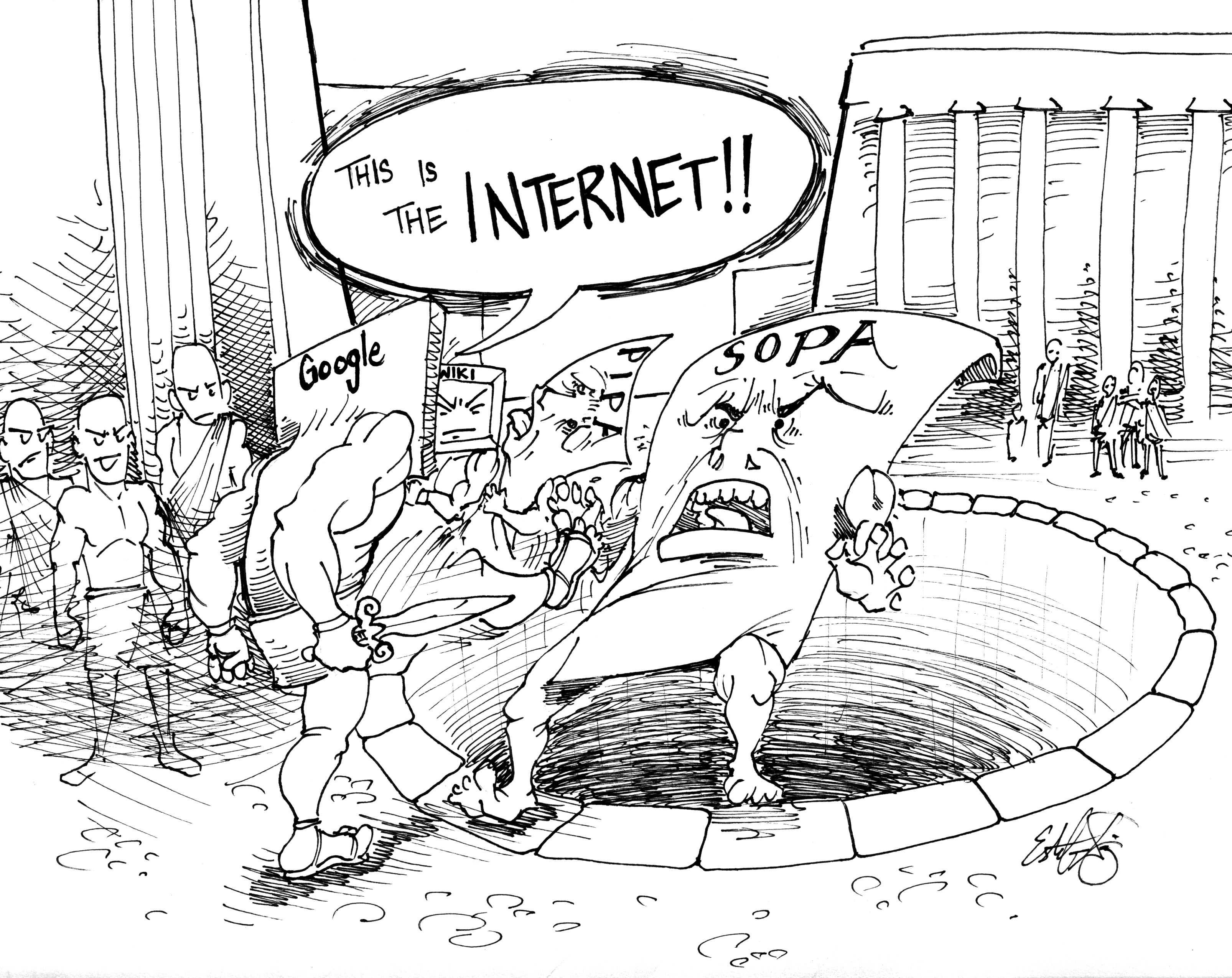
On Friday, the Internet claimed a temporary but important victory over a controversial Congress bill. Many feel it threatens the free flow of information across the Internet despite its original stated intent.
The Stop Online Piracy Act (SOPA) in the House and the Protect IP Act (PIPA) in the Senate, both ultimately aimed at halting illegal use of copyrighted material, were postponed on Friday after major Internet companies protested the bills on their websites.
Wikipedia “blacked out” by displaying a black screen over the usual pages on its website, and popular content aggregator Reddit went offline. Google and Yahoo also voiced their opposition to SOPA and PIPA, with Google collecting more than 7 million signatures on an anti-SOPA and anti-PIPA petition.
Following the Internet’s protests, multiple senators and representatives who at one point backed the bill renounced their support. The total grew to at least 10 senators almost 20 representatives.
Even as a news-gathering organization that produces copyrighted material in print and on the Internet every day, we commend Americans opposing SOPA and PIPA and thank those prominent Internet companies for doing the same.
The problem with the bills isn’t the original stated intent. None of the protesting websites or dissenting Congress members has endorsed piracy, a problem that has plagued the Internet for at least a decade with peer-to-peer file sharing services that allow users to share copyrighted material with one another.
The issue at hand lies in the bills’ execution.
Under SOPA, websites can be shut down if accused of facilitating the use of copyrighted material. This could range from the use of a copyrighted song on a YouTube video to a website providing a link to illegally downloaded media.
For foreign websites based outside of the U.S. that are accused of piracy, SOPA would force Internet service providers to block access to those websites.
The accuser does not have to prove the website is breaking copyright law; rather, the website has to prove it is not. This is backward from one of the cornerstones of the American justice system – we are innocent until proven guilty, not the other way around.
With SOPA on hold, Congress needs to focus on finding an alternative. Some lawmakers have already made that effort, for example, by introducing the Online Protection and Enforcement of Digital Trade Act (OPEN). OPEN, CNN explains, would better protect websites accused of copyright infringement.
Whatever action Congress takes, the Internet has spoken, and SOPA and PIPA are clearly unacceptable methods of curbing piracy. While we stand for keeping pirated material off the Internet, the possibilities for enforcing SOPA and PIPA frighten us and could hurt well-meaning websites.






